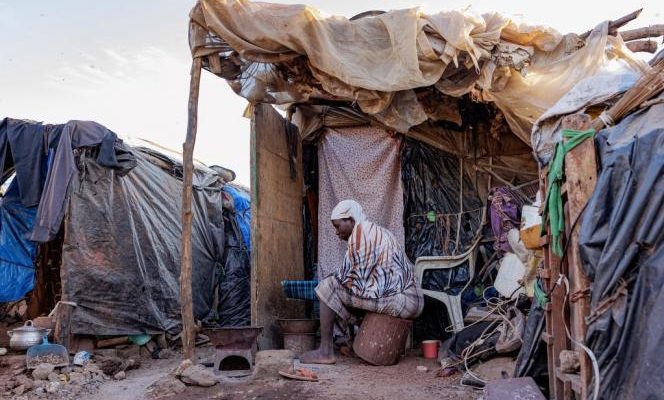Their fear was justified: seeing the billions of dollars granted to Ukraine to enable it to cope with the Russian invasion, the African heads of state had over the months worried about a solidarity that would be played out their detriment. The preliminary figures for official development assistance (ODA) published on Wednesday April 12 by the Organization for Economic Co-operation and Development (OECD) prove them right.
In 2022, official aid granted by rich countries increased by 13.6% – “among the most important in history” – to reach 204 billion dollars (187 billion euros), but the continent did not benefit from it. On the contrary, the envelope which was allocated to the countries of sub-Saharan Africa was reduced by 7.8% to 29.7 billion dollars, a level comparable to that of 2017.
Alongside the funds released for Ukraine (16.1 billion dollars, or 7.8% of total ODA), the reception of refugees in donor countries is the other reason behind the record figures. of 2022. These expenditures – accounted for in official development assistance – represented more than 29 billion dollars in 2022, almost as much as the sums dedicated to development programs or humanitarian operations on the continent itself.
Several countries such as Denmark or Sweden assumed from the beginning of the war the transfer of part of their external aid to Ukraine and the reception of refugees. In the Sahel, the deterioration of relations between donors and coup regimes has made these decisions all the easier. The Danish government has announced that it will halve its support for Burkina Faso in March.
Preferential treatment of the Ukrainian crisis
“The objective of aid is to support the most vulnerable populations in developing countries. However, increasingly substantial amounts no longer even cross the borders of donor countries. It is regrettable even if it is also important to make more efforts to welcome refugees”emphasizes Louis-Nicolas Jandeaux of Oxfam-France.
France appears to be one of the few countries to have increased its support for Africa without the data provided by OECD experts making it possible to precisely measure the extent or the geographical or sectoral breakdown. But, in November, it suspended its funding for Mali – with the exception of humanitarian assistance – because of the links between the junta led by Assimi Goïta and the Russian mercenaries of the Wagner group.
The OECD calls for all of these preliminary figures to be read with caution because they do not take into account the aid passing through multilateral organizations such as the World Bank and the final balance sheet, which will not be available for several months, could turn out to be significantly different.
Nevertheless, the message sent on Wednesday will be perceived as confirmation of preferential treatment of the Ukrainian crisis in relation to the needs of an entire continent, or even as a sanction for those who wanted to defend their right to neutrality in the conflict with Russia by not voting for UN resolutions condemning Moscow. While it is premature to draw such conclusions, this decline in aid nevertheless sheds harsh light on the speeches full of promises of solidarity formulated by the rich countries to respond to the shock of the Covid-19 pandemic.
“Disengagement of donor countries”
Since then, the inflationary effects of the war in Ukraine on energy or food prices have been added to economies weighed down by confinements and the disorganization of international trade. Food crises – locally aggravated by conflicts and extreme climatic events – are reaching an unprecedented scale.
In the Sahel or in the Horn of Africa, millions of people have been displaced and depend on humanitarian aid to guarantee their livelihood. The situation of over-indebtedness in which some twenty countries find themselves and the rise in interest rates on the international markets are reducing States’ ability to access credit. In its global economic outlook published on Tuesday, the International Monetary Fund (IMF) forecasts sub-Saharan Africa will grow by 3.6% this year compared to 3.9% in 2021.
“This disengagement of donor countries will force the most vulnerable countries [les plus dépendants de l’aide ] to further mobilize their domestic resources, which they have done very little so far. If they succeed in this, in particular by improving their governance, the decline in aid will ultimately have a positive effect. But we can also imagine a negative scenario where the reduction of resources leads to an even greater absence of the State, to more poverty and insecurity.explains Ibrahim Mayaki, executive secretary of the planning agency of the New Partnership for Africa’s Development (Nepad).
Newsletter
“The Africa World”
Every Saturday, find a week of news and debates, by the editorial staff of “Monde Afrique”
Register
For this former Prime Minister of Niger, the reversal of ODA in 2022 translates “the inequality of the international order and the resurgence of a geopolitical use of the financial instruments of solidarity”.
